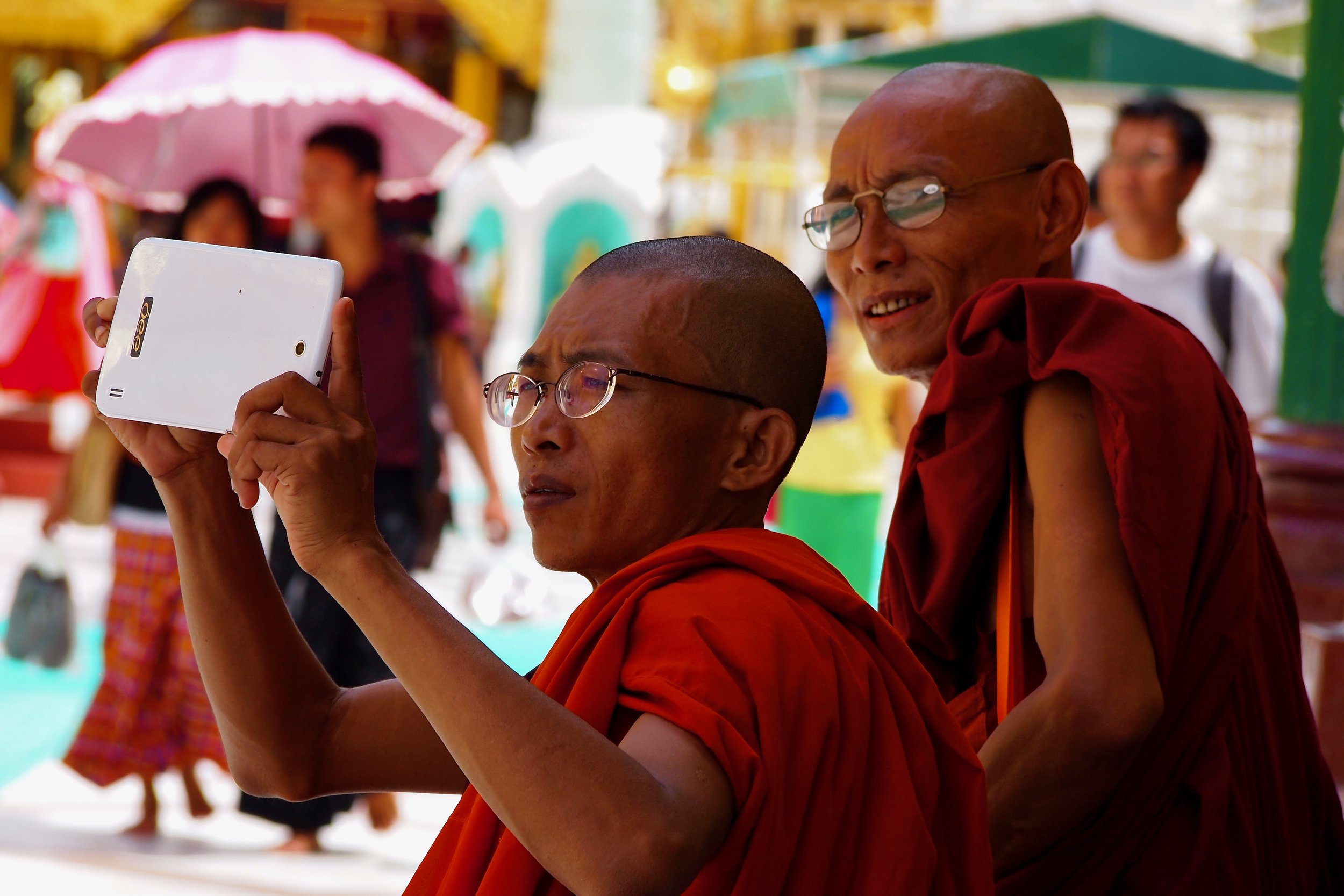
THE REMARKABLE ORDINARY IN MYANMAR
Around 2015, Myanmar underwent rapid changes, from introducing traffic lights to seeing its population armed with the internet. The progress has proven to be fragile.
The most normal things are extraordinary in Myanmar. Traffic lights, for example. Khin Maung Nyo found out what those were only after he was fined for ignoring them. For years, the 42-year-old chef rode his scooter over the only place in Bagan where the first asphalt road in the region crosses the second asphalt road in the area. He never gave it much thought, never took his hands of the accelerator. There was never any need, as there was hardly any other traffic anyway.
Then, one day last year, Khin saw a black box hanging from a pole above the road. Again, he didn’t think much of it. A few days passed and all of a sudden, the black box had a green light shining from it. Getting closer, Khin’s confusion grew as the green light changed to yellow, then to red.
“I had never seen anything like it,” he says. “But I just kept going, because work was waiting.” He kept this up for a few days, passing the crossing under sometimes green, sometimes yellow, often red light. “Until one day, a policeman stopped me,” Khin goes on. “I’m still mad about it. I had to pay him 1,000 kyat (0.60 euro), because apparently it’s illegal to pass when the light is red. How was I supposed to know? Nobody here ever saw a light over the road like this before and nobody ever told us what the light meant!”
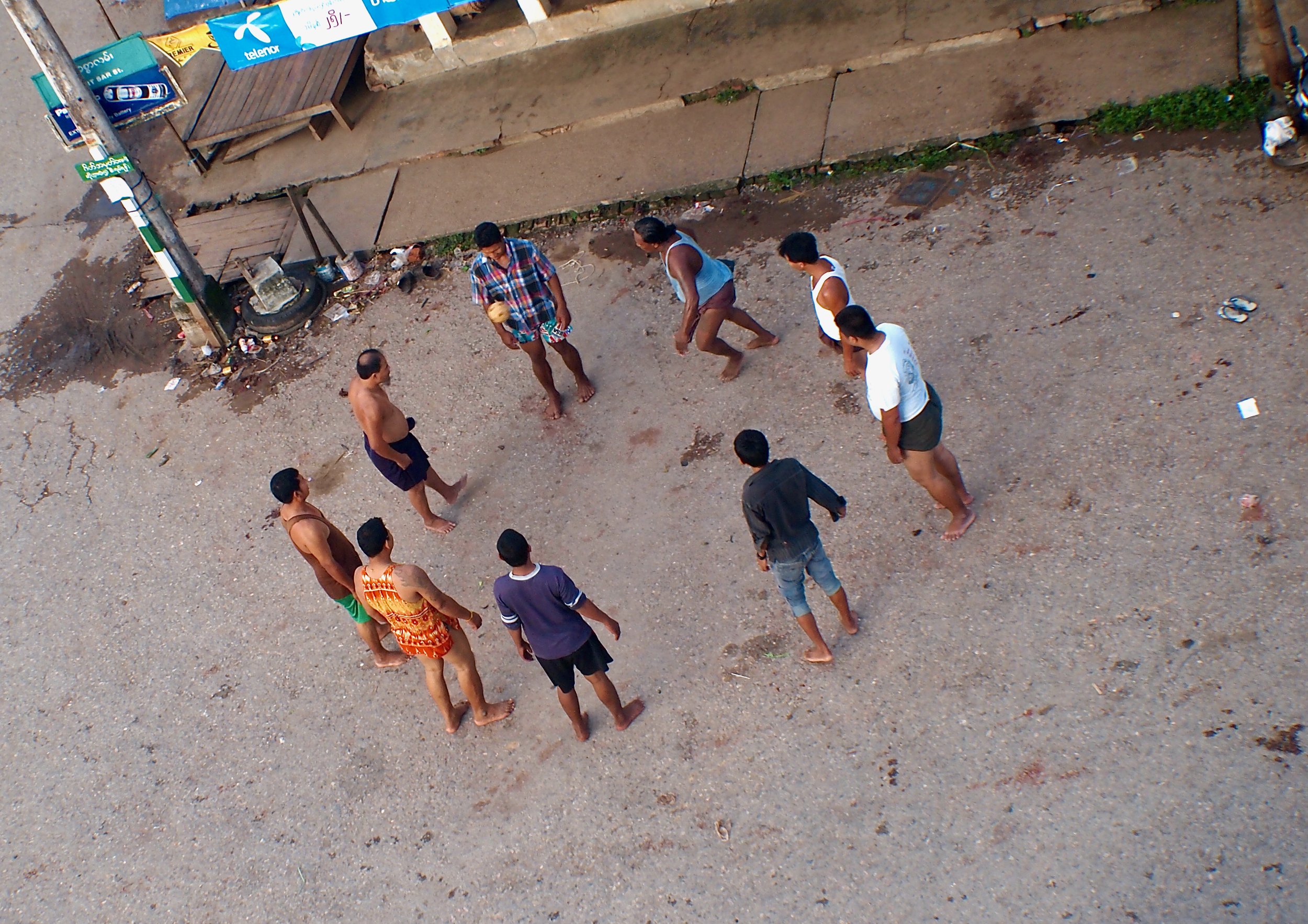
After decades of self-imposed isolationism, Myanmar is trying to connect to the rest of the world again. Not just by introducing traffic lights seen everywhere, but also by increasing certain freedoms for most of its 54 million people, and by holding the first real elections for its parliament in over 25 years.
The generals who had been ruling the country since 1962 have traded their military uniforms for civilian suits. Billboards all over the country are a testament to the rapidly increasing investments made by foreign companies - previously barred by international sanctions.
They hang in the arrivals hall of the international airport in Yangon: 'We are now open for business. OCBC Bank.’ and ‘MasterCard. Proud to be the first to serve Myanmar.’
In Hpa-An, a small town in the country’s Southeast, the street signs are sponsored by bandage brand Hansaplast. In northwestern Bagan street advertisement screams Dove, Coca Cola and Knorr.
“This country is experiencing hugely fundamental changes,” says Roland Kobia, since 2013 the European Union ambassador to Myanmar. “Crucial elections are pending, the constitution is being debated, there is still no peace with armed minorities and for the first time in decades the doors have been opened to the rest of the world. It means we have to see from day to day which way this is going. Only one thing can be said with certainty: the Myanmar we see now is already a completely different country than only a handful of years ago.”
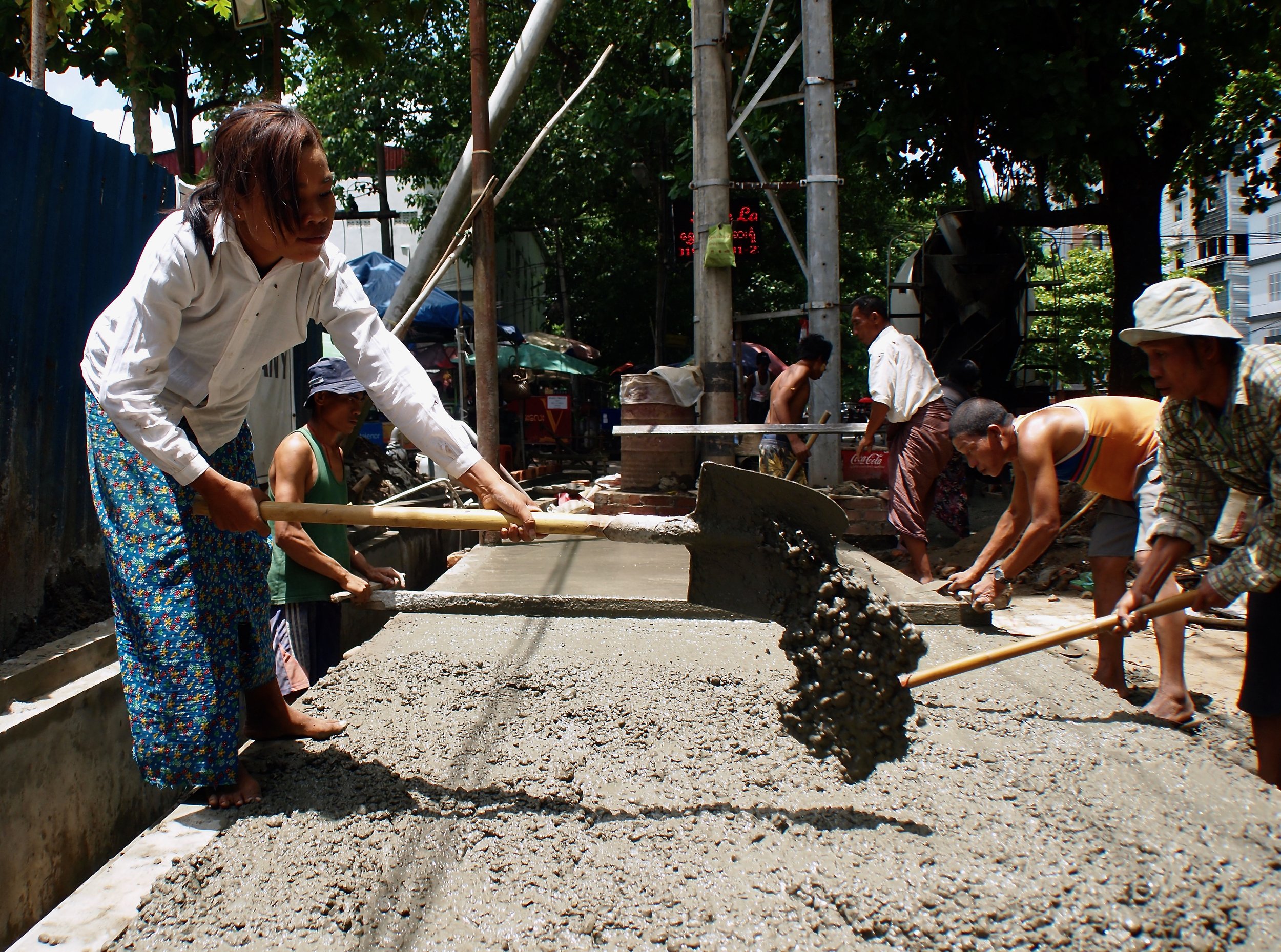
Which makes objects that the rest of the world is completely familiar with, a novelty for the Burmese. Like the three ATMs in the recently opened Junction Center shopping mall in downtown Yangon. The green lights of the card slots blink, the shining screens promise ‘Foreign Banking’ and the sides are covered with labels for Visa, Maestro and MPU - the country’s own brand new electronic payment system.
Never mind that only five percent of Burmese currently have a bank account.
Just two generations ago, Birma (until 1989 the official name for Myanmar) was the richest country in Southeast Asia and the largest exporter of rice. The harsh military rule destroyed all of that.
The country is right at the crossroads of the fastest growing economies in the world: China, India and Southeast Asia. Yet, the Birmese only became poorer during the past fifty years.
According to the World Bank, forty percent of them live below the poverty line. A third of Birmese children are undernourished and only half of them finish some sort of primary education. Seventy percent of Birmese don’t have electricity in their homes. Their life expectancy is, at 67, eight years shorter than people in neighboring Thailand.
In Bagan, where ATMs were also introduced recently, Ko Min Min knows one thing for sure: “As long as the transition to a new Myanmar keeps on the right track, we will see endless possibilities.”
The economy of Bagan relies practically completely on tourists who visit the region’s two thousand centuries old temples and pagodas. Ko (48) has been a tourist guide in Bagan since 1998.
“For years we would hardly see any travellers here,” he tells. “Then again, we had nowhere they could stay. Backpackers would sleep in the street or with the monks in the monasteries.”
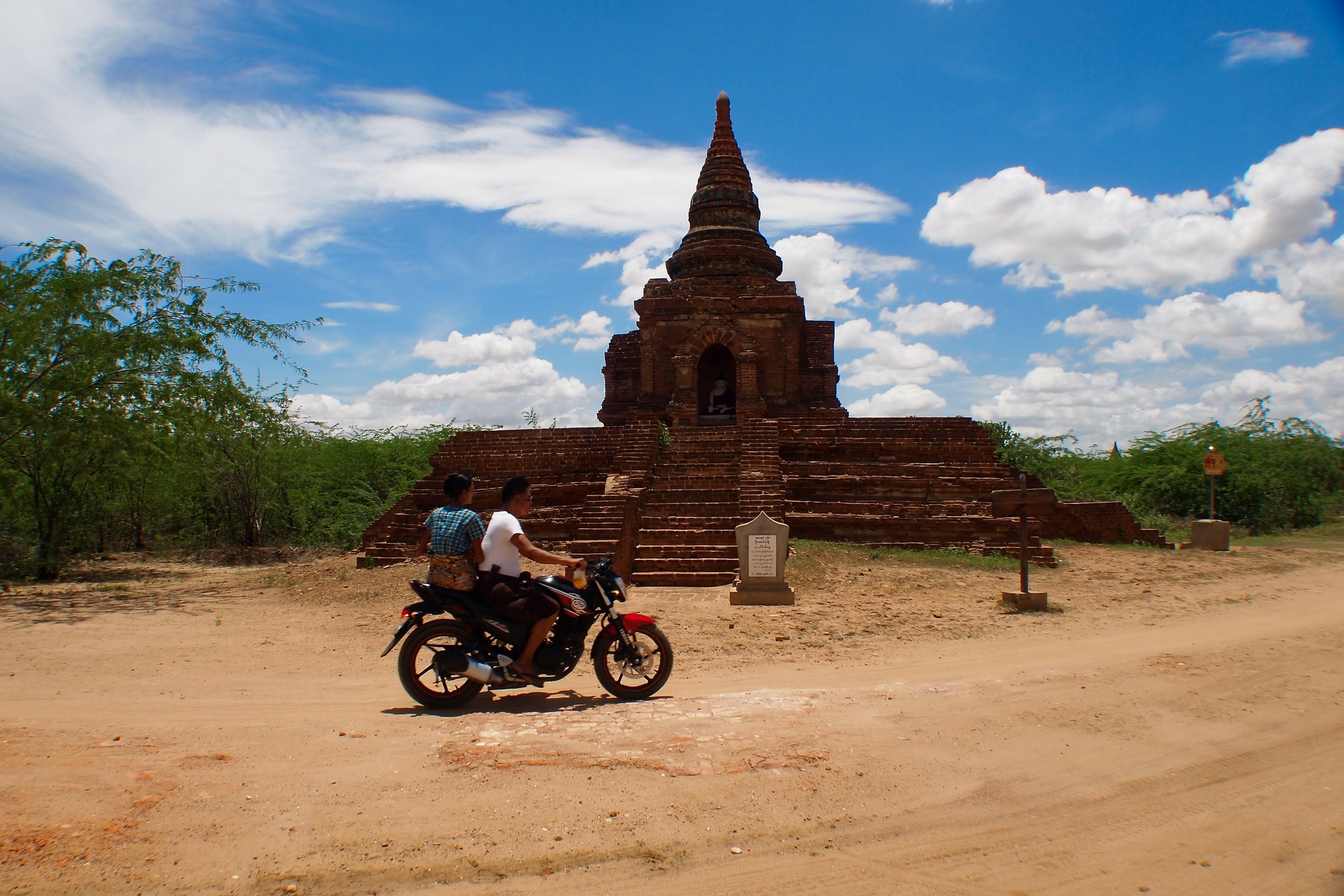
That all changed after US president Barack Obama visited Myanmar in 2012. Ko: “His visit did so much more to open up our country to the world than the generals with their reforms could have ever accomplished. All of a sudden, American credit card companies were interested in doing business here. Where American tourists only recently had to carry mountains of brand new US Dollar bills to pay for anything here, now they can buy souvenirs at the smallest street shops using a credit card. This has generated a lot more business for the local population.”
Even teenagers selling sunset cruises on the Irrawaddy river are getting their share. They charge ten US Dollars for the two hour cruise. A piece of paper stapled to a tree near the riverbed advertises what they can buy with those ten bucks: three months of English classes. Ko: “It is literally their ticket to a better future.”
It’s Saturday afternoon. On the eleventh floor of a small office tower in Yangon, dozens of people are hunched over laptop computers. They’re staring intensely at graphs, maps and spreadsheets. They hardly notice the power going out every now and then. In Yangon, power outages are as common as floods in the rainy season.
Nobody in the space is over 30 years old, although that goes for a lot of places in a country where over seventy percent of the population is under 27. They’re hacking. “Civil hacking, is what we call it,” says Yan Naung Oak (28). Earlier this year he founded Phandeeyar, an organization which aims to give new technology a prominent role in the country’s reforms. It’s a remarkable change compared to so recently, when owning a USB stick was illegal. Myanmar has been so cut off from the world, the language doesn’t even have a word for ‘software’.
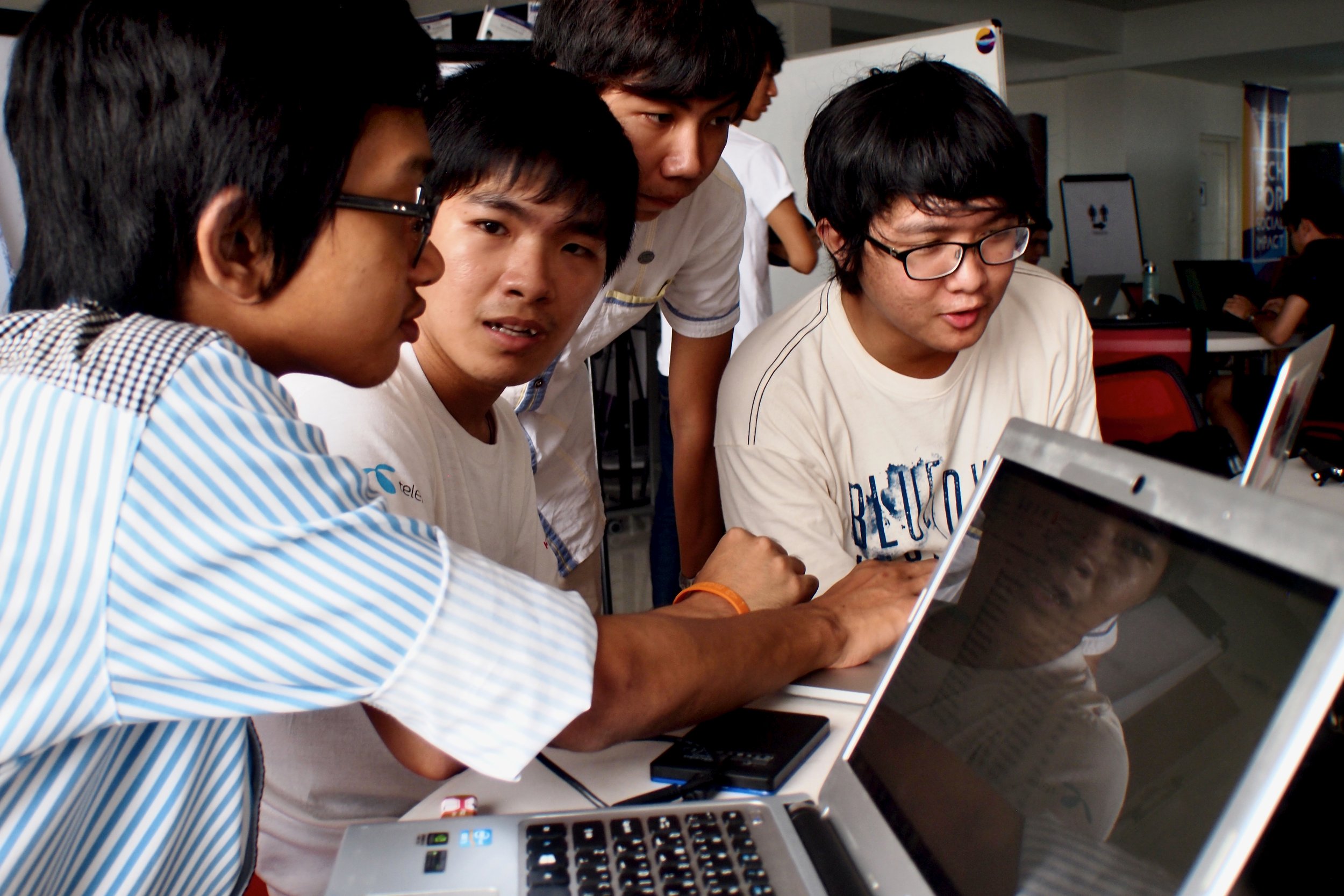
In the few months of it’s existence, Phandeeyar already managed to organize fifty events ranging from courses on digital campaigning, to flying with drones. Today’s meetup of volunteers is all about hacking the huge amount of data that’s come out of the country’s first ever national census.
Two guys are focused on a spreadsheet which organizes households in the Ayeryawadi region, based on the type of toilet in the home. “We want to build apps with which anyone can have easy access to all of this data,” Yan explains. “Beter informed citizens make a beter electorate for the upcoming elections. But the data also helps companies with decisions on where to invest.”
Perhaps the fastest change in Myanmar over the past year is the rise of the smartphone. In 2014, a SIM-card would cost up to two thousand euros. Now, you can buy one with 3G data anywhere on the street for under two euros - slightly less than the minimum day wage. Three carriers are competing in the market: the local MPT, Norwegian Telenor and Ooredoo from Qatar.
Birmese go from barely any access to the internet at all straight to carrying the web with them on smartphones for the masses. And walking the streets in Yangon, it seems like they’ve done nothing else since forever. Yan: “People who never owned a camera or a tv are now saving up and buying a smartphone which combines all these appliances in one small machine. We are jumping from zero to the latest in tech. Why would we waste time on taking the steps in between? We want what the rest of the world has as well.”
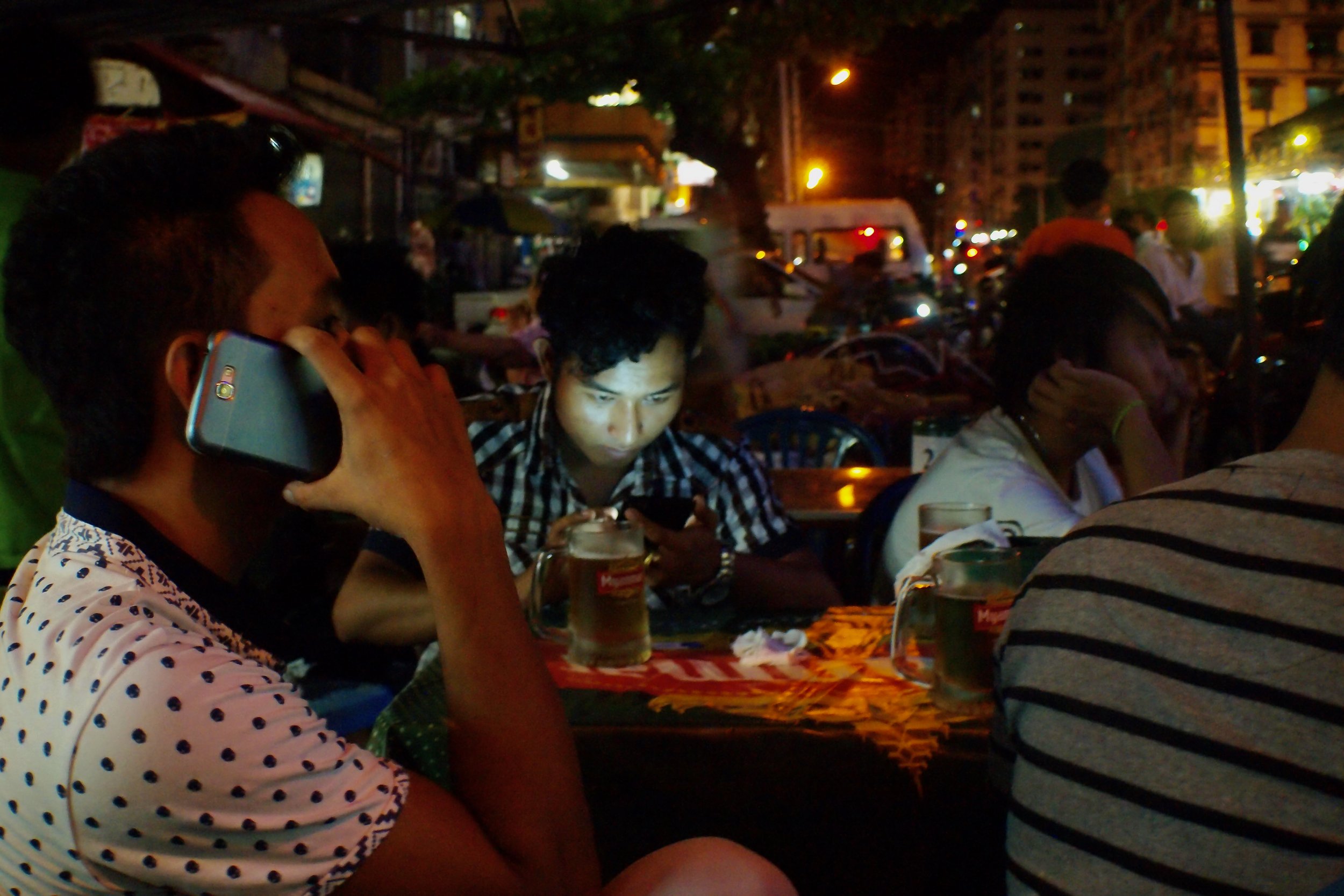
The rise of the smartphone and the internet in Myanmar makes Yan hopeful for the future of his country. For himself, the rise is an important reason why he decided to return after studying in the United States and Singapore. Yan: “A few years ago, most young Burmese dreamed of studying and finding work abroad. Myanmar had nothing to offer them. That has changed fundamentally. We did a poll under attendees at our events. Only five percent said they still planned to leave the country.”
Thet Naing Swe (28) has also returned to Myanmar after having studied in the United Kingdom and Singapore. The growing number of foreign companies looking to enter the Birmese market are paying gold to people like him, who are fluent in the local language and customs while also having experience abroad.
Thet decided two years ago to return to Myanmar. “In 2013, we didn’t have any cables in the ground. Now, I can go online at home. Sure, the speed is still rather slow at 1 or 2 MB per second, but it’s fast enough to work with. And thanks to a generator we don’t suffer power outages anymore.” He realizes the standard of living in Yangon doesn’t compare in the slightest to the UK or Singapore. But: “in the end, you just want to live in your home country.”
He founded a company which builds apps for foreign enterprises. Besides that, Thet is busy building educational apps for the local market - something that doesn’t make him any money so far. “Even though primary education is free, many kids don’t attend school because they are working,” Thet says in his home. “If they would go to school instead of doing work, they wouldn’t have any money for food and clothing. At night, these kids meet up at tea stalls in the streets. Volunteers go out and visit them there to use my apps to teach them to read.”
He’s convinced he’ll earn a good living with his commercial app building business eventually. “Already half of all Birmese own a mobile phone,” he says.
“Just two years ago, almost no one did. Now even my 86-year old grandpa has one. He uses apps to meditate and after that he goes on Facebook with it. By starting my business early, I’ll have a huge advantage over others when in just two more years every Birmese will be online on a phone.”
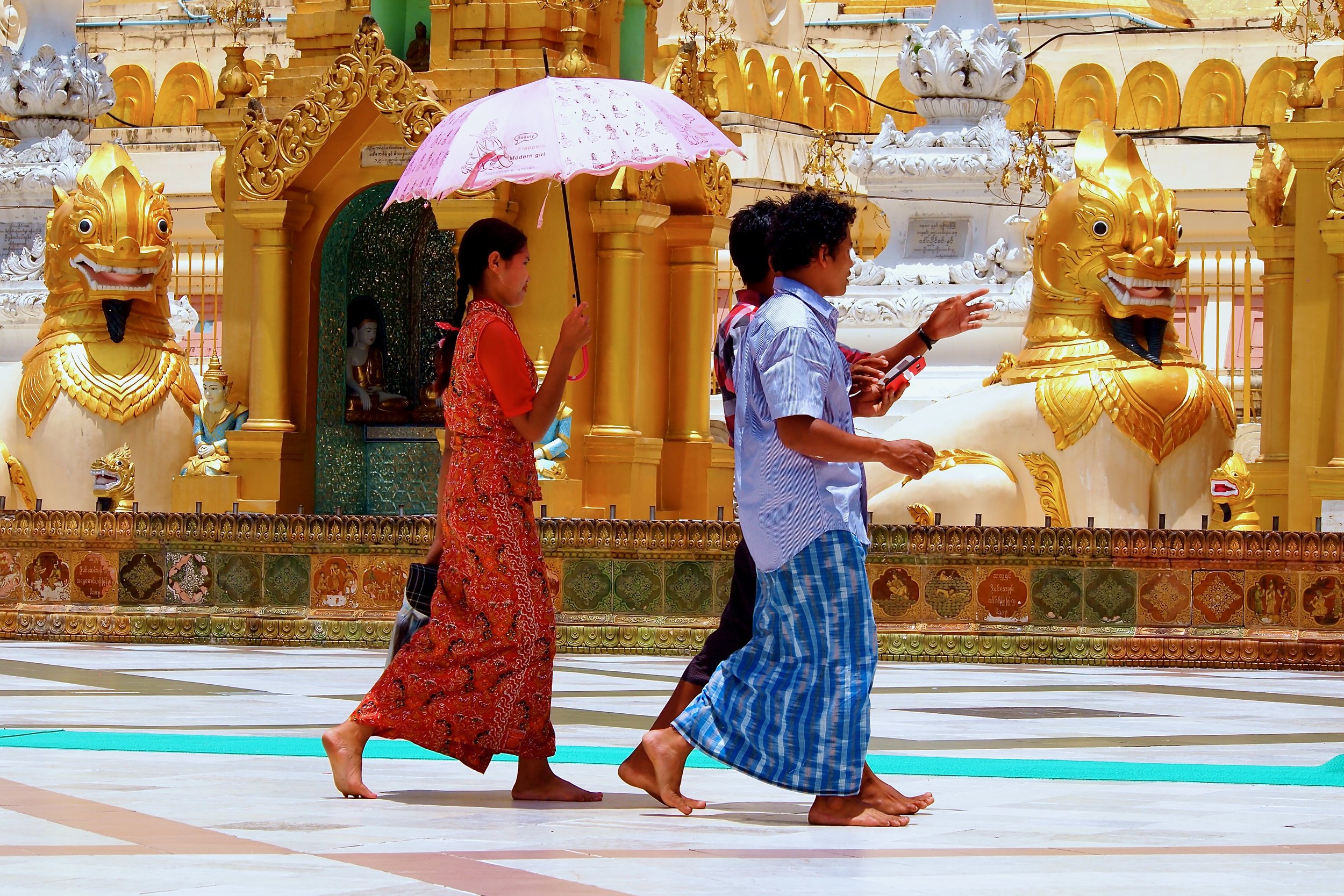
Even the most sacred place in Myanmar is no longer immune to the progress gripping the country. The Shwedagon Pagoda in Yangon, which is at least 1500 years old, now offers free wifi so anyone can tweet about their moment of enlightenment. Monks can be seen walking around making selfies.
But the progress is fragile. Everything has to be build from the ground up, from hotels to cell phone towers, asphalt roads to sanitation. The railroad tracks date from the colonial era and don’t seem to have been maintained since. Outside of the cities, any roads are scarce.
Agriculture once again has the potential to become one of the main sectors of the economy. But exports are going to be difficult, as there is no quality enforcement agency and hardly a customs authority.
The textile industry is undergoing rapid growth, but still lags far behind other countries in the region. If only because everything needed to sow a shirt, from the buttons to the sowing machine, has to be imported. The port of Yangon, which has to process all these imports and exports, pales in size and efficiency compared to the regional giants in Singapore, Hong Kong and Shenzhen.
The government is a large paper tiger without its own computer network. Civil servants who do manage to be online, use their private Gmail accounts to handle government business. Once they move on to another department, they and their account and passwords are gone.
Media enjoyed more freedoms at first. Now, the Ministry of Information returned to the practice of handing out reprimands and fines and even jailing journalists. The army is also making sure no one forgets it will remain on as the real center of power in the country. It blocked a change in the constitution, thus blocking the popular opposition leader Aung San Suu Kyi from becoming president.
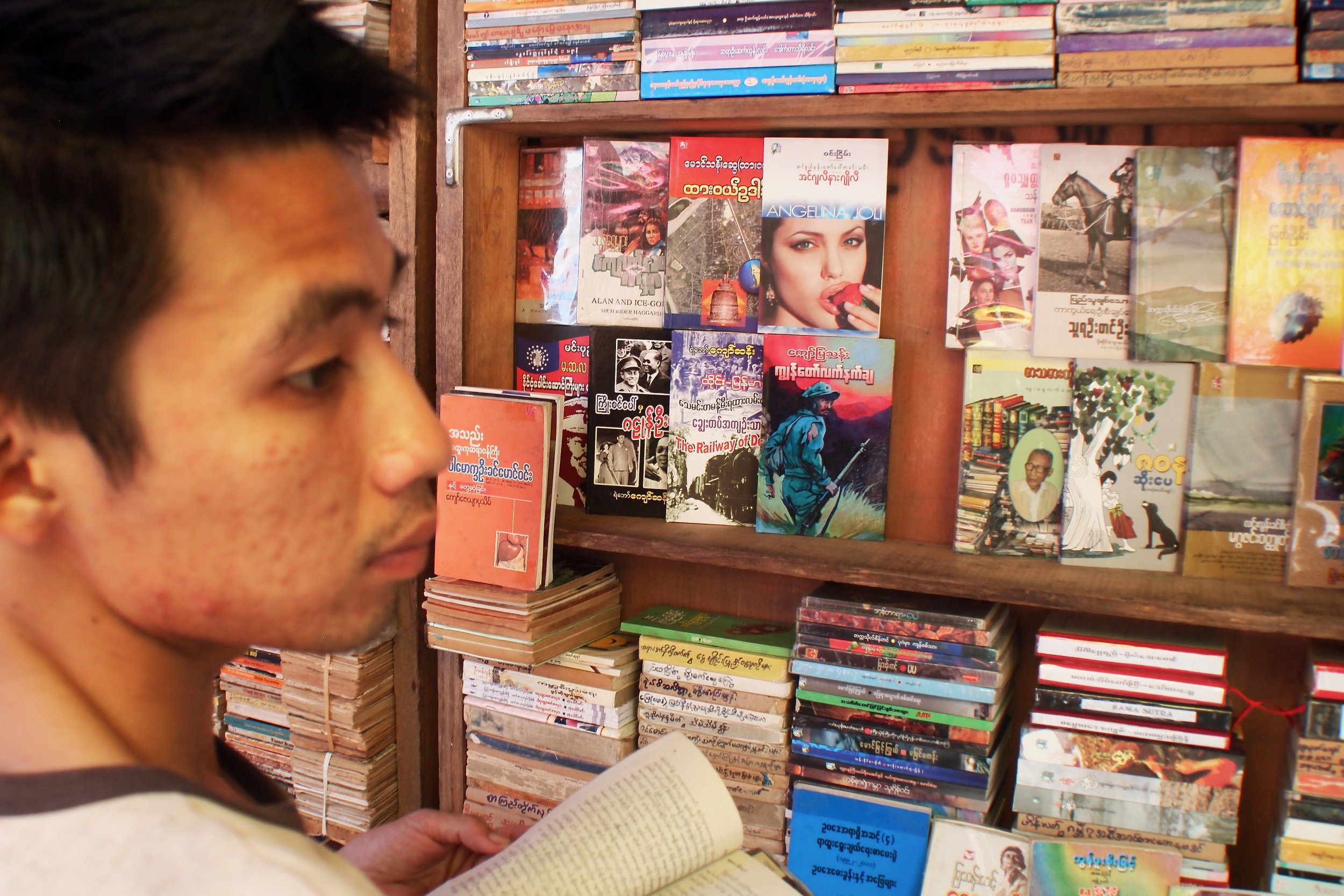
“Despite all this, we shouldn’t become cynical,” says European ambassador Kobia in Yangon. “The country first went through the easier changes. So it makes sense that, now that it’s time for the harder stuff, it seems like things are going backwards a bit. Patience is needed. Certain member states of the European Union have still not completely reformed, 25 years after the fall of communism. It took Spain, Portugal and Greece a long time as well to transit from a military regime to a democracy. It takes time, but eventually I’m certain Myanmar will be a normal, Asian country.”
And nothing says ‘normal, Asian country’ in the 21st century than the flashing neon signs of American fastfood chains flooding city streets. In downtown Yangon the traditional green facade of a building -green being the only right color for the location according to a feng shui master- has been covered up by the red and white plastic of fried chicken giant KFC.
The opening of the country’s first KFC branch was seen as hugely important in the only country on the continent that still lacks McDonald’s, Pizza Hut and Starbucks.
The Yangon KFC saw so many locals checking it out on the first day, that the restaurant’s manager exclaimed ‘KFC to now truly be a part of this country’. And so, Myanmar has become yet another bit more like the rest of the world.